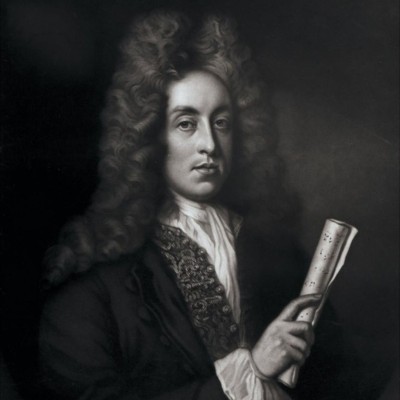Henry Purcell

Henry Purcell was born into a musical family on September 10th 1659 in Westminster, London. His father was a gentleman of the Chapel Royal and sang at the coronation of King Charles II of England. As a result, he and his family lived a very short distance from Westminster Abbey from 1659 onwards. It was Purcell’s uncle, Thomas, who arranged for Henry to become a chorister at the Chapel Royal after Purcell’s father died in 1664. He began his studies under Henry Cooke, Master of the Children, then with Pelham Humfrey, Cooke’s successor. He remained a chorister there until his voice broke in 1673, at which point he became an assistant organ-builder John Hingston. He is said to have begun composing at the age of 9. He eventually began studies with Dr. John Blow, after the death of Humfrey and after attending Westminster School he was appointed copyist at Westminster Abbey. In 1679, Purcell began composing songs to accompany drama, along with some sacred choral music. Also in this year, Purcell’s teacher, John Blow, resigned his post as organist of Westminster Abbey after being in the role for a decade, allowing Purcell to replace him. In the years that followed, Purcell focused his attention upon the composition of sacred choral music and, after six years of composition for the theatre, severed his ties with it. It is not known exactly when, but at some point between 1680 and 1688, Purcell composed his most famous work – the chamber opera Dido and Aeneas. The fame attributed to the work is due to its being seen as a landmark in the history of English dramatic music, due to its use of recitative to set expositional material, similar to the Italian operas of this time. He died in 1695 at the height of his career. It is unclear exactly what the cause of death is, but experts suspect one of two theories – he caught a chill whilst walking back from the theatre, returning home to find his wife had accidentally locked him out, or he succumbed to tuberculosis.
Henry Purcell was born into a musical family on September 10th 1659 in Westminster, London. His father was a gentleman of the Chapel Royal and sang at the coronation of King Charles II of England. As a result, he and his family lived a very short distance from Westminster Abbey from 1659 onwards. It was Purcell’s uncle, Thomas, who arranged for Henry to become a chorister at the Chapel Royal after Purcell’s father died in 1664. He began his studies under Henry Cooke, Master of the Children, then with Pelham Humfrey, Cooke’s successor. He remained a chorister there until his voice broke in 1673, at which point he became an assistant organ-builder John Hingston. He is said to have begun composing at the age of 9. He eventually began studies with Dr. John Blow, after the death of Humfrey and after attending Westminster School he was appointed copyist at Westminster Abbey. In 1679, Purcell began composing songs to accompany drama, along with some sacred choral music. Also in this year, Purcell’s teacher, John Blow, resigned his post as organist of Westminster Abbey after being in the role for a decade, allowing Purcell to replace him. In the years that followed, Purcell focused his attention upon the composition of sacred choral music and, after six years of composition for the theatre, severed his ties with it. It is not known exactly when, but at some point between 1680 and 1688, Purcell composed his most famous work – the chamber opera Dido and Aeneas. The fame attributed to the work is due to its being seen as a landmark in the history of English dramatic music, due to its use of recitative to set expositional material, similar to the Italian operas of this time. He died in 1695 at the height of his career. It is unclear exactly what the cause of death is, but experts suspect one of two theories – he caught a chill whilst walking back from the theatre, returning home to find his wife had accidentally locked him out, or he succumbed to tuberculosis.
Compilations with this composer
CompilationsExternal Links
Music Map
Discover more about the classical music of today with NMC's Music Map, and exciting and educational online tool which enables you to see and hear the connections between composers, their teachers, pupils, influences and their works.
Music Map
